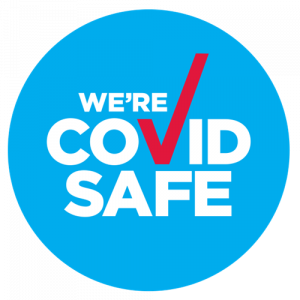A stroke happens when the blood supply to the brain is interrupted. Blood flow to the brain is essential as it carries oxygen and nutrients to keep the brain working. If blood flow stops to an area of the brain the cells begin to die. A stroke may be caused by a blockage (ischaemic stroke) or a bleed (haemorrhagic).
If you suspect yourself or another person is having a stroke you should phone 000 immediately. Early medical treatment is an important factor for survival and recovery.
Look out for the acronym FAST. If you see any of these symptoms seek help.
F – Face: do they have a drooping face and/or asymmetry?
A – Arms: are they unable to lift one or both of their arms? have their arm(s) lost strength?
S – Speech: is their speech slurred?
T – Time: each passing minute is important so call 000 immediately
What are the common effects of a stroke?
The effects of a stroke depend on where the stroke occurred and the extent of damage to the brain. The following are common effects of a stroke:
- Weakness in one side of the body (often the opposite side of where the stroke occurred in the brain)
- Poor movement and difficulty coordinating movements
- Not recognizing one side of the body (neglect)
- Slurred speech
- Difficulties understanding language
- Difficulties saying words and sentences
- Problems chewing and swallowing food, drinks, and saliva
- Incontinence
- Voice issues
- Changes to senses – taste, sight, hearing, smell, touch
- Vision loss
- Fatigue
- Change in mood and personality
- Difficulties solving everyday problems
- Fatality
How can a speech pathologist help a person who has had a stroke?
Speech pathology may be involved in the initial acute management of a stroke and long-term therapy.
Initially a speech pathologist may assist in determining how the stroke has affected communication and swallowing. The therapist may recommend and teach Augmentative and Alternative Communication Systems (AAC) so the person can communicate and make choices about their medical plans. They may also assist family, friends, and medical staff to communicate effectively with the person. Additionally, a speech pathologist may change the person’s diet and food/drink to ensure they can eat, drink, and take medications safely.
Following initial medical treatment, a speech pathologist is commonly involved in long term management to assist the person to return to previous activities, or to assist them to manage their changed functioning. A speech pathologist may help with the following:
- Implement AAC systems to support a person’s specific communication needs
- Support a person who cannot think of the word they want to say
- Support a person who says the wrong words
- Help a person to say sounds precisely so people understand them
- Treat voice problems
- Assist with memory
- Improve problem solving
- Provide therapy for social problems
- Help manage diet changes so the person is safe to eat a drink
- Train others in how to support successful communication
- Educate family, medical staff, workplaces
- Provide compensatory strategies
If there are swallowing and communication concerns it is important to start therapy as soon as possible. Intervention applied within the first 12 months is often when the quickest and concentrated gains are made.
How can I help someone who has had a stroke communicate?
There are many strategies to assist someone to communicate. It is best to first chat with your speech pathologist to determine the most effective strategies to apply.
The following are some common recommendations:
- Speak in short sentences
- Write words down, or encourage them to write
- Pause between sentences/ideas so they have time to think about what you have said
- Give them time to think of what they want to say and for them to communicate their message
- Make sure you have their attention before you begin talking to them
- If they have neglect of one side of their body, stand on the side that they can recognize
- Talk about here and now topics
- Monitor fatigue and talk about important topics when they are well rested
- Stick to routines
- Reduce distractions such as radio or tv noise in the background
- If in a group setting limit it to just a few other people and make them aware of how they can help the person
- Let the person know when you have understood them
- Do not assume the person does not understand you
- Talk to the person, even if they cannot talk back to you
- Include the person in conversations
- Respect the person’s wishes
If you or a loved one has experienced a stroke and would like assistance in managing the changes that have occurred, please do not hesitate to call Harrison Speech Pathology and speak directly to one of our experienced therapists.





